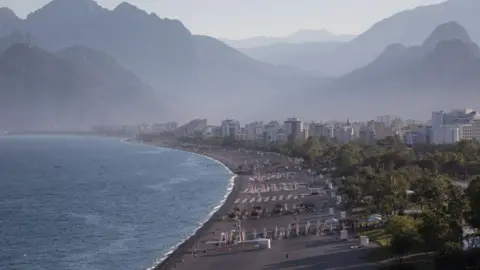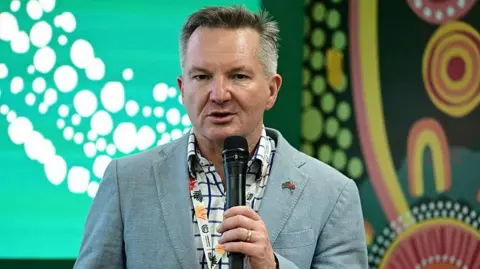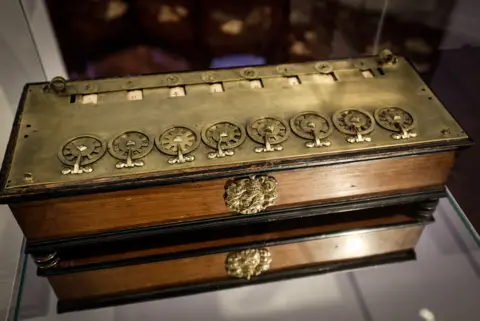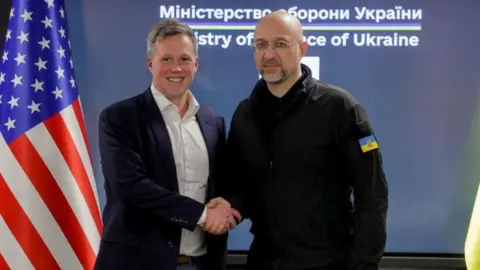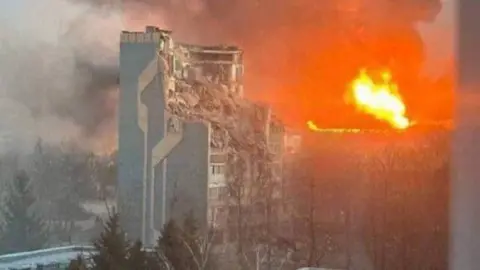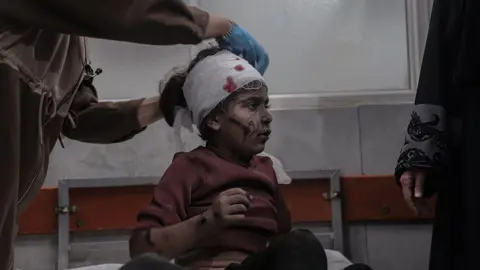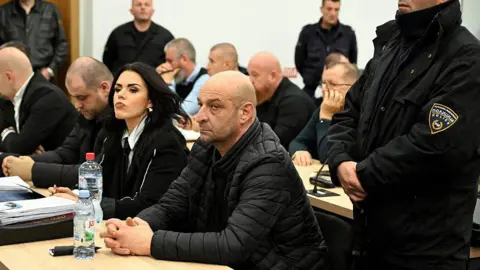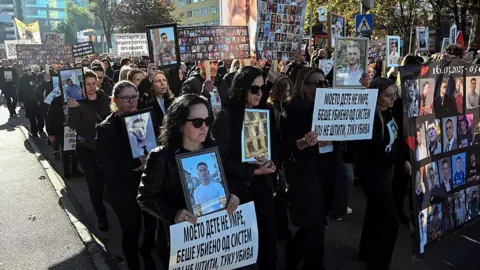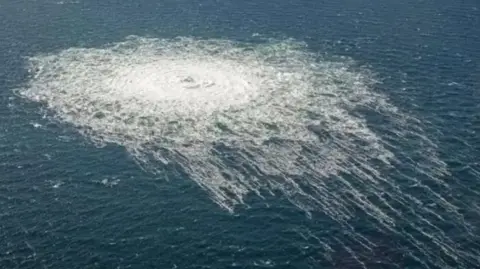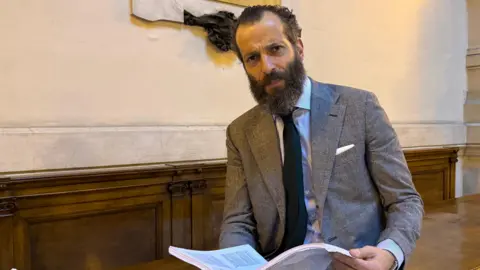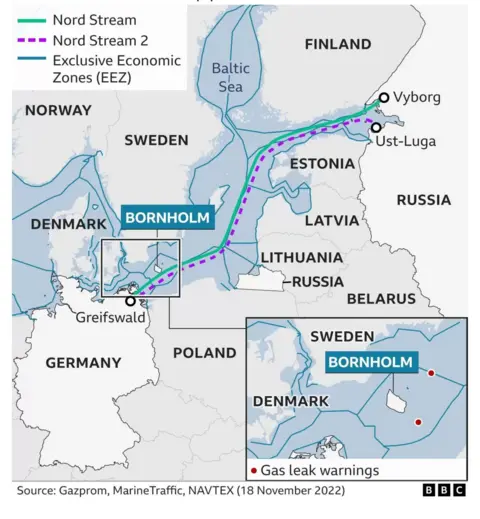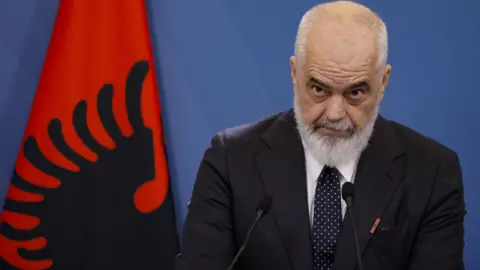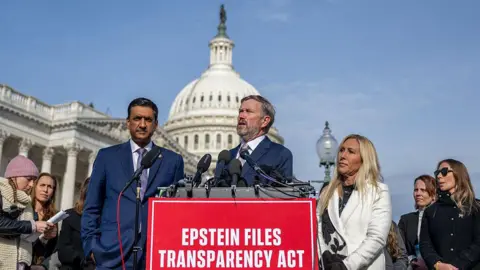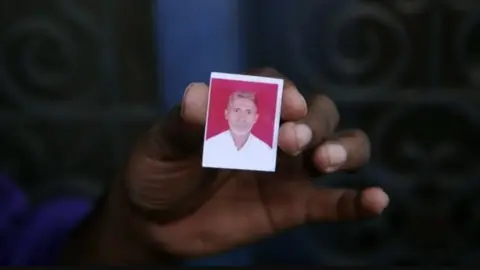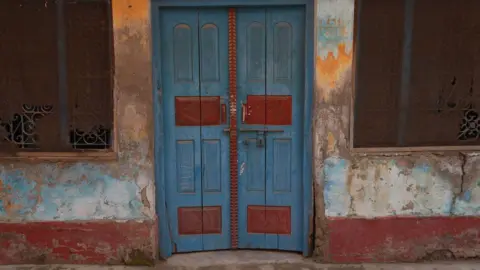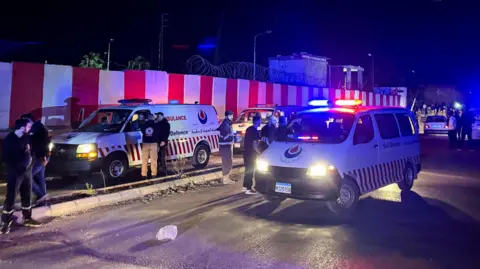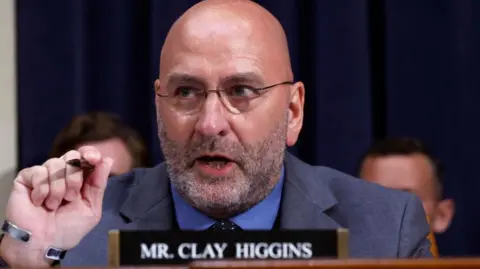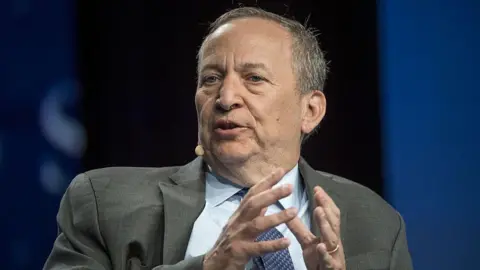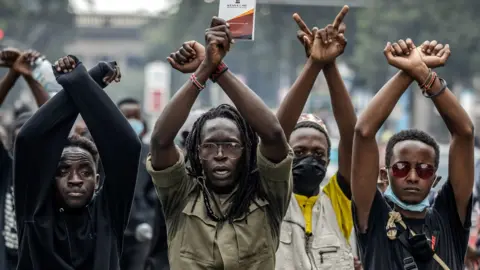Trump signs bill ordering justice department to release Epstein files

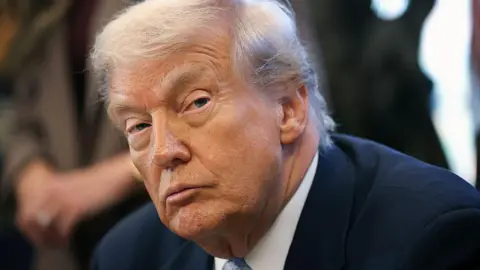 Getty Images
Getty ImagesUS President Donald Trump announced on Wednesday that he has signed a bill ordering the release of all files related to the late convicted sex offender Jeffrey Epstein.
The bill requires the justice department to release all the information from its Epstein investigation "in a searchable and downloadable format" within 30 days.
Trump previously opposed releasing the files, but he changed course last week after facing pushback from Epstein's victims and members of his own Republican party.
With his support, the legislation overwhelmingly cleared both chambers of Congress, the House of Representatives and Senate, on Tuesday.
In a post on Truth Social on Wednesday, the president accused Democrats of championing the issue to distract attention from the achievements of his administration.
"Perhaps the truth about these Democrats, and their associations with Jeffrey Epstein, will soon be revealed, because I HAVE JUST SIGNED THE BILL TO RELEASE THE EPSTEIN FILES!" he wrote.
Lawmakers in the House passed the legislation with a 427-1 vote. The Senate gave unanimous consent to pass it upon its arrival.
Some 20,000 pages of documents from Epstein's estate, including some that directly mention Trump, were released last week.
They include 2018 messages from Epstein in which he said of Trump: "I am the one able to take him down" and "I know how dirty donald is".
Trump was a friend of Epstein's for years, but the president has said they fell out in the early 2000s, two years before Epstein was first arrested. Trump has consistently denied any wrongdoing in relation to Epstein.
Speaking to reporters on Monday night, Trump said Republicans had "nothing to do with Epstein".
"It's really a Democrat problem," he said. "The Democrats were Epstein's friends, all of them."
Despite the president's signature, the release of the full Epstein files is not guaranteed. Based on the bill's text, portions could still be withheld if they are deemed to invade personal privacy or relate to an active investigation.
One of the bill's architects, Republican Congressman Thomas Massie, said he had concerns about some files being withheld.
"I'm concerned that [Trump is] opening a flurry of investigations, and I believe they may be trying to use those investigations as a predicate for not releasing the files. That's my concern," he said.
